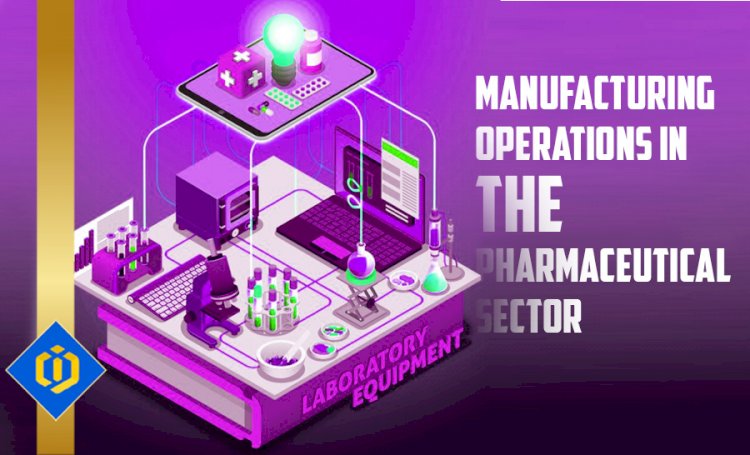Behind the Scenes: Demystifying the Production and Manufacturing Operations in the Pharmaceutical Sector

Introduction to Pharmaceutical Manufacturing
After completing successful clinical trials, pharmaceutical products undergo a pivotal transformation from limited production for testing purposes to large-scale manufacturing for the wider consumer market. This phase is of paramount importance, as it involves effectively managing the expansion of operations while ensuring strict adherence to rigorous quality standards.
Scaling Production for Efficiency
The transition to full-scale manufacturing entails a complex interplay of economic factors that can greatly influence the market success of a drug.
The Role of Economies of Scale: Pharmaceutical companies that possess the capability to produce on a large scale gain a distinct cost advantage. By manufacturing larger batches, resources can be utilized more efficiently, automation can be implemented, and fixed overhead costs can be distributed, resulting in lower per-unit costs.
Optimizing Production Processes: Production lines are meticulously designed and optimized to minimize waste and maximize productivity, thereby driving down costs.
The Importance of Quality Assurance
While economic considerations are significant, they must always be balanced with the unwavering commitment to product quality and safety.
Stringent Quality Control Systems: Pharmaceutical manufacturers implement robust quality control (QC) systems to ensure that each batch of the product meets stringent predetermined standards.
Adhering to Regulatory Standards: Companies must comply with various international and national regulatory requirements, including Good Manufacturing Practices (GMP), which outline specific guidelines for production and testing processes that can significantly impact the quality of the drug.
Cost Implications of Quality Control
While maintaining quality assurance standards is crucial, it comes with significant costs and operational considerations.
Investment in QC Infrastructure: Establishing advanced laboratories and acquiring state-of-the-art equipment for ongoing testing represents a substantial capital investment.
Training and Expertise: Skilled personnel are indispensable to the QC process, requiring investment in training and expertise.
Conclusion
Pharmaceutical manufacturing represents a critical phase where economic and practical factors intersect. Understanding the intricate relationship between economies of scale and the unwavering commitment to quality control is essential for individuals involved in the pharmaceutical industry or those seeking to gain insights into its manufacturing operations.
Author: Pooyan Ghamari, Swiss Economist & Visionary

 content-team
content-team 






















